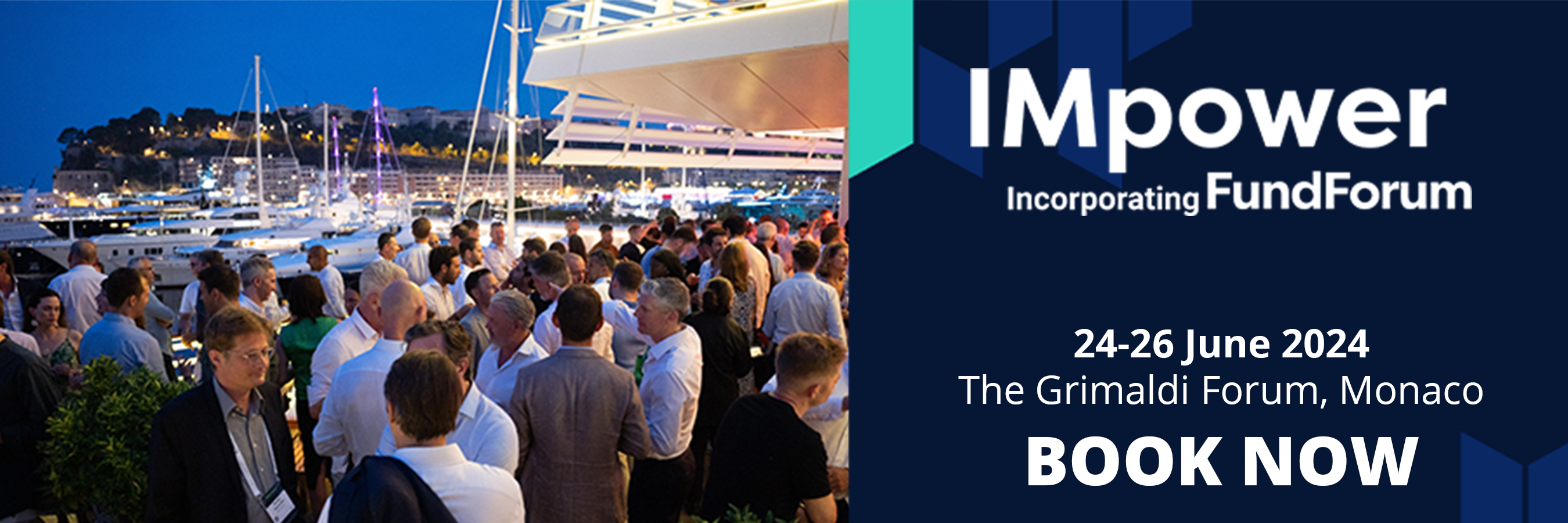The future feels bright for European asset managers

After two years of disappointing sales flows, Europe’s asset management industry appears to be turning a corner in 2024. There are various signs of an upswing in sentiment, from buoyant stock markets to positive survey results – such as the recent findings from Bank of America that global fund managers are feeling the most bullish since late 2021.
I’m looking forward to discussing distribution trends and some of the data from Research in Finance’s latest annual European Fund Selector Study (EuroFSS) with a panel of senior industry figures at IMpower in June and getting their review of the mood music – but let’s set the scene first.
Which asset classes should we be keeping an eye on?
One key topic shaping the industry narrative is the ongoing ‘retailisation’ of private markets. The day where these make up the bread in butter in the average retail investor’s portfolio is probably well in the distance – if it ever comes.
Nevertheless, it’s clear that private assets investments are making inroads into the more sophisticated end of the client spectrum, in part helped by the spread of specialist alternative platforms. Fund distributors responding to EuroFSS in early 2023 reported an average of 8% of client assets already being allocated to private markets, with the highest allocations reported in Germany and Switzerland.
The revision of the ELTIF rules in the EU and the steady trickle of new LTAFs coming to market in the UK should further improve the accessibility of private markets investments. However, education will be key to raising awareness and confidence in this side of the asset management industry – interviews we conducted in Q4 with distributors in France, Germany, Italy and Switzerland revealed that few had heard of an ELTIF, let alone were planning to invest in one. We’ll soon know if that is representative of the pan-European picture from the upcoming results of EuroFSS 2024.
“It’s hard to say what the demand for ELTIFs could be in France. There are already quite a lot of ways of investing in private assets with a relatively low minimum entry.”
Wealth manager, France“I think the ELTIF 2.0 reforms are really positive. The lower minimum investments will make it much easier to invest in these.”
Family office adviser, Germany
Is responsible investing over… or are we jumping the gun?
Responsible investing has been a dominant theme in recent years, but 2023 seemed to mark an inflection point in its fortunes – increased scepticism among professional investors was apparent in our pan-European and British studies.
“On paper, it’s a great idea. Right now, I see it as pure marketing. I question why one oil company might be deemed sustainable while another one isn’t”
Private banker, France
However, this waning enthusiasm may prove to be a blip. Some also expressed a view that responsible investing is the right thing to do for the planet and society, and that as the next generation of investors comes of age, they will place a greater emphasis on this in their portfolios. In the short term, improved reporting that showcases the impact of responsible investments could also boost confidence in this area, as could further clarity on labels and ratings.
“I think the whole topic of sustainability metrics is in flux. Some groups are further along than others, and it’s difficult to measure these things without concrete processes. I like it when groups explain how their funds and voting are sustainable.”
Private banker, Italy
Fee pressure front and centre of distributors’ minds
Indeed, growth in sustainable investment was the second most-mentioned future industry trend in our European distributor interviews. But another was even more prominent in their minds: fee pressure. The return to a higher-rate environment combined with some turbulent geopolitics saw a surge in investor appetite for cash and other low-risk fixed income solutions, while cost-consciousness in general has been growing in recent years.
Improved returns in 2024 will ease the pressure on distributors and asset managers alike to some extent, but the trend of growing demand for lower-cost passive funds, and especially ETFs, shows little sign of abating. The upcoming EuroFSS results include familiarity and demand data on a new ‘middle way’ for asset managers: active ETFs. These are at a much more nascent stage of development in Europe than in the US, but if their current growth rate continues, they could become a force to be reckoned with.
We’ll be exploring these topics and more at IMpower. If you’d like to find out more about EuroFSS or any of our other studies, please do get in touch. We look forward to seeing you all in June!
